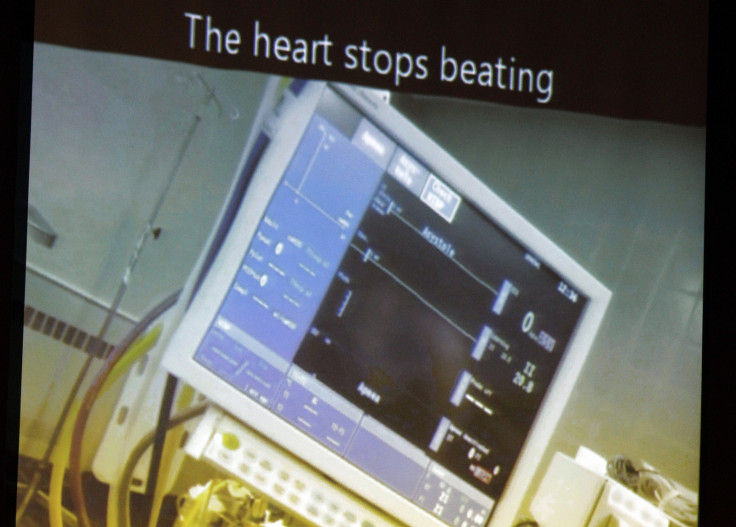Cardiac arrest: Early CPR doubles chances of survival, two major studies show

Early cardiopulmonary resuscitation or CPR, more than doubles the chance of survival for patients suffering out-of-hospital cardiac arrest.
The percentage of patients who receive life-saving resuscitation has improved thanks to a mobile app that alerts trained people to an emergency.
These facts are borne out by two related Swedish studies published in New England Journal of Medicine highlighting the importance of CPR.
Every minute that passes without CPR being performed, the chances of survival decreases by seven to 10%, say experts.
In a major analysis of 30,000 patients in Sweden across three decades, researchers found that 10.5% of people who experienced cardiac arrest and received early CPR from bystanders lived for at least 30 days after their cardiac arrest.
In contrast, only 4% of people who did not receive CPR from bystanders before the arrival of an ambulance lived for at least 30 days.
In another study, researchers evaluated the efficiency of dispatching CPR trained volunteers alerted by a mobile phone app.
Mobile app saves lives
Known as SMS Lifesavers, the volunteers caused a 30% increase in the number of patients who received CPR before the arrival of paramedics, the rescue services or the police.
The study involved 10,000 civilian CPR trained volunteers in Stockholm County who were alerted by mobile phone text message or voice calls if they were within a range of 500 metres.
The two studies were conducted by researchers at the Center for Resuscitation Science at Karolinska Institutet and Södersjukhuset (Stockholm South General Hospital) in collaboration with University of Borås, Danderyd Hospital and Sahlgrenska Academy, all in Sweden.
With a high rate of over 30,000 out-of-hospital cardiac arrests every year in the UK, only one in 14 survives. The BHF suggests more CPR training can turn onlookers into life-givers.
"Both these studies clearly show that cardiopulmonary resuscitation is an effective, life-saving treatment, and that further encouragement must be given to respond swiftly on suspected cardiac arrest," says Dr Jacob Hollenberg, Cardiologist and Head of Research at the Center for Resuscitation Science.
In UK, just one in 14 people who collapse with a cardiac arrest live, says NHS. The high UK rate of over 30,000 out-of-hospital cardiac arrests every year will only come down if more onlookers are able to administer immediate CPR, according to the British Heart Foundation (BHF).
The American Heart Association too recommends that everyone — untrained bystanders and medical personnel alike — begin CPR with chest compression.
In the USA, more than 300,000 people suffer out-of-hospital cardiac arrest every year and only one in 10 victims survives.
More than three million Swedes (out of a population of 10 million inhabitants) have been trained in CPR.
Cardiac arrest
The most common cause of a cardiac arrest is a life threatening abnormal heart rhythm called ventricular fibrillation when the electrical activity of your heart becomes so chaotic that the heart stops pumping and quivers or "fibrillates" instead.
On the other hand, a heart attack is a sudden interruption of blood supply to part of the heart muscle. It is likely to cause chest pain and permanent damage to the heart. The heart is still sending blood around the body and the person remains conscious and is still breathing.
However, a person having a heart attack is at high risk of experiencing a cardiac arrest.
What is CPR?
Cardiopulmonary resuscitation (CPR) is a lifesaving technique useful in many emergencies, including cardiac arrests or near drowning, when someone's breathing or heartbeat has stopped. It involves a combination of hard and rapid chest compressions to restart the heart, along with rescue breaths.
If not trained in CPR, then provide hands-only CPR. This involves uninterrupted chest compressions of about 100 a minute until paramedics arrive.
If trained and confident, begin with chest compressions instead of first checking the airway and doing rescue breathing. After 30 chest compressions check the airway and give rescue breaths.
CPR can keep oxygenated blood flowing to the brain and other vital organs until help arrives, says Mayo Clinic.
When the heart stops, the lack of oxygenated blood can cause brain damage within eight to 10 minutes.
There is not much difference if you were trained as a health care provider providing chest compressions and the breathing or just do CPR chest compressions, say experts.
For more on the life saving technique, click here.
© Copyright IBTimes 2025. All rights reserved.





















